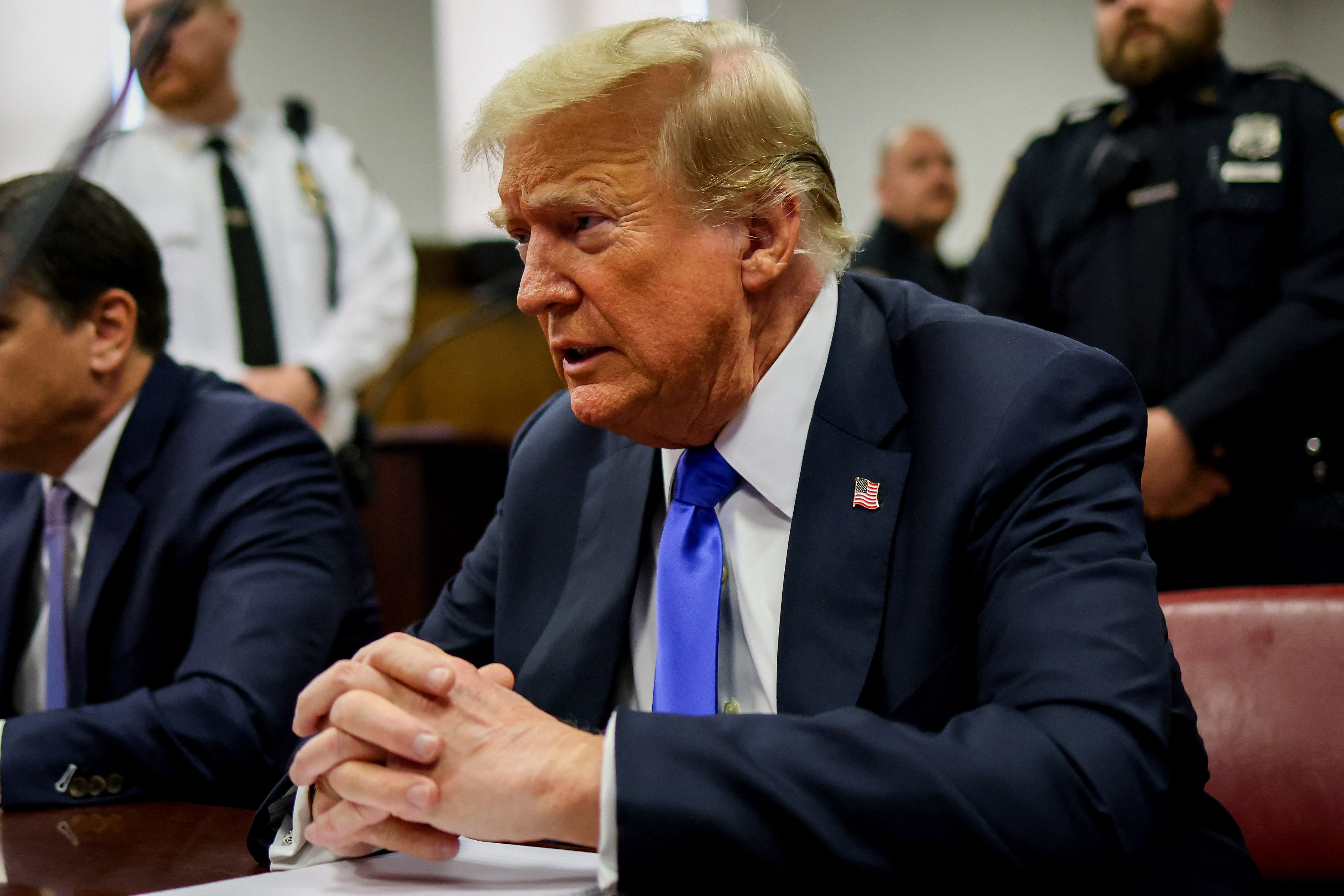Around one in six voters say that a guilty verdict in former President Donald Trump’s hush money trial will make them less likely to vote for him, according to a new poll.
In the NPR/PBS Newshour/Marist poll released on Thursday, 67 per cent said a guilty verdict would make no difference in their voting intentions while 76 per cent said the same about a not guilty verdict.
Seventeen per cent said a guilty verdict would make them less likely to vote for Trump.
Jury deliberations have begun in the trial in which Mr Trump is accused of falsifying business records to cover up a hush money payment to adult actor Stormy Daniels shortly before the 2016 election to keep her quiet about an alleged 2006 affair. He has denied the 34 felony charges against him.
While views of Mr Trump and Joe Biden appear largely set and unlikely to change for many voters, small numbers of those who say a guilty verdict would make them less likely to vote for Trump are among groups important to the former president in a tight election.

Among white voters without college degrees, 14 per cent said they would be less likely to back the former president if he’s found guilty – the same is true for 17 per cent of those living in small towns, 11 per cent of those who live in rural areas, and 10 per cent of Republicans.
However, the poll also found Biden struggling with voters who brought him to victory in 2020, such as voters between 18 and 29 and voters under 45. In the last election, the younger group comprised about one-sixth of the electorate, while those under 45 made up about 40 per cent.
Exit polls show that Biden won 18-29-year-olds by 60 to 36 per cent and those between 30 and 44 by 52 to 46 per cent.
The NPR/PBS Newshour/Marist survey reveals that Mr Biden’s current struggles with these groups may be the reason why the race is so tight and why he appears to be losing when third-party candidates are included.
The poll found that Mr Biden leads Mr Trump 50 to 48 per cent in a head-to-head matchup. Among voters under 45, his lead is now down to four percentage points, while among Gen Z and Millennials, Biden’s lead is down to six points.
But things change when third-party candidates Robert F Kennedy Jr, Cornel West, and the Green Party’s Jill Stein are added to the mix, with Trump leading Mr Biden by four points. When third-party candidates are included, Mr Trump leads by six points with Gen Z and Millennials and by eight points among those under 45.
The director of the Marist College Institute for Public Opinion, Lee Miringoff, said younger voters don’t “see a lot of connection” to Mr Biden, according to NPR.
“They’re worried about the cost of living, which isn’t reserved just for them, but clearly, as they envision moving into adulthood, cost of living, housing costs, how to get into that next step seems to be an obstacle … They’re seeing the economy as a lot of other voters do – laying it on Biden’s doorstep at the moment.”
Among those between 18 and 29, only 24 per cent approve of Biden’s job performance. Sixty-two per cent have an unfavorable view of Biden, while 42 per cent have an unfavorable view of Trump. With all voters, Trump has a higher unfavorable rating than Biden, 54 to 52 per cent.
But Miringoff says who younger will back is still up in the air.
“This is the unsatisfied, unattached, disliking-of-the-candidates group. So it’s not that they’re racing to Trump, they’re just not where Biden’s had this group in the past,” he says.

